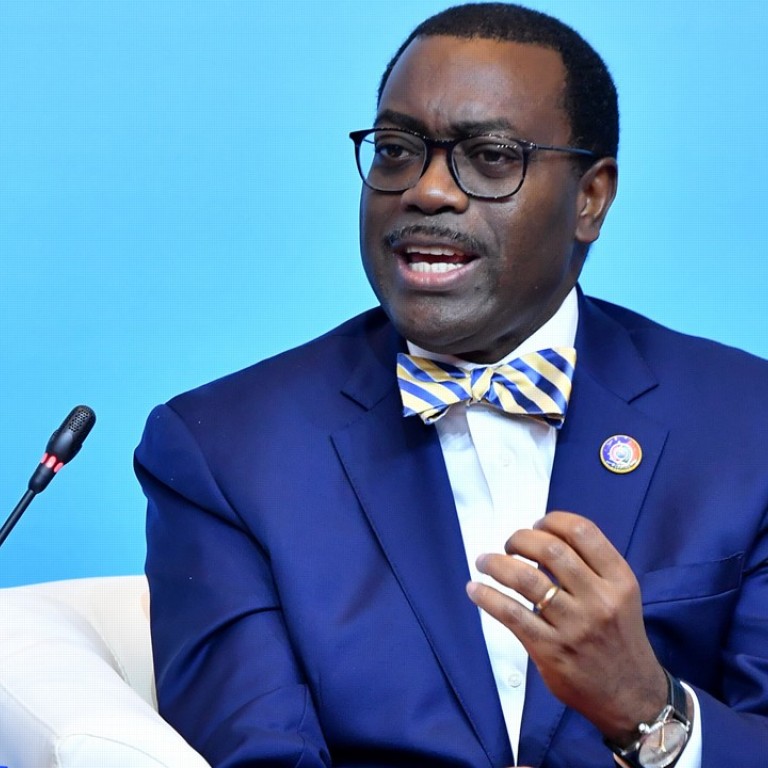
Chinese ‘will have to manage risks’ as investors pour more cash into Africa
African Development Bank chief denies nations have been pushed into a debt trap but says they should take ownership of deals
Risk management will be crucial for any Chinese investment in Africa, the head of the African Development Bank said, as Beijing seeks to extend its reach in the region.
Akinwumi Adesina, who was in Beijing for the Forum on China-Africa Cooperation, denied the world’s second largest continent was caught in a debt trap brought on by Chinese spending on infrastructure. But he said African countries should take ownership of deals when they are negotiating with China.
Xi also urged Chinese companies to invest at least US$10 billion in Africa in the next three years as part of a support package that includes infrastructure projects, medical care, environmental protection, agricultural assistance, government scholarships and training.
Adesina, who has been president of the development bank since 2015, said it was important for Beijing to understand how funds could be best spent and how risks could be managed in Africa, especially if the government was encouraging Chinese companies – not just contractors but also investors – to go there.
“That’s particularly important because Chinese companies are now more interested in Africa, as Xi said. So when that happens, you may face risks – project risks, market risks, political risks,” Adesina said.
China defends extra US$60 billion pledge to Africa from critics at home
China has rapidly expanded its presence in the continent, becoming Africa’s biggest trading partner in 2009 and opening its first overseas military base in Djibouti last year. But there are growing concerns over whether Beijing is burdening countries with too much debt as it offers them much-needed infrastructure investment under Xi’s “Belt and Road Initiative” – developing roads, railways, ports, pipelines and other trade links – that has become the cornerstone of China’s foreign policy. There are fears many African nations might struggle to repay the Chinese debt used to build expensive infrastructure projects, allowing Beijing to take control of strategic assets.
But Beijing has defended the initiative, with Xi telling leaders at the forum that there are “no political strings” attached to China’s investments in Africa.
Adesina said Africa needed infrastructure investment from China to help bridge a financial gap of between US$68 billion and US$108 billion a year for the continent to keep up a development pace similar to China’s decades ago, and to be competitive.
But he said projects should be designed to ensure a fair deal not just for Chinese investors but also for the African countries – most of which are landlocked and keen to open up – including terms on procurement, as well as on social and environmental issues.
“The procurement process – who does which contract – it should be a more open process in which the African governments that borrow the money would have a say in terms of how the contract procurement process would be done,” he said. “Even though you know the money would support Chinese contractors, but the process could be more competitive – even for Chinese companies – so the country could decide on which would be the best quality plus the lowest cost.”
China shakes up old order of Western donors with surge in aid to Africa
Adesina rejected the claim that Beijing’s infrastructure drive had pushed African nations into a debt trap, saying the 37 per cent debt-to-GDP ratio in Africa was “well within the accepted norms”, and that the investments would yield returns.
“If you have a credit card, and use your credit to buy a lot of junk food, or hamburgers, that’s a way to take debt. If you use your credit card and invest in real estate, that’s another way to take debt,” Adesina said. “But I think taking debt for infrastructure is not the same thing as taking debt for consumption.”

